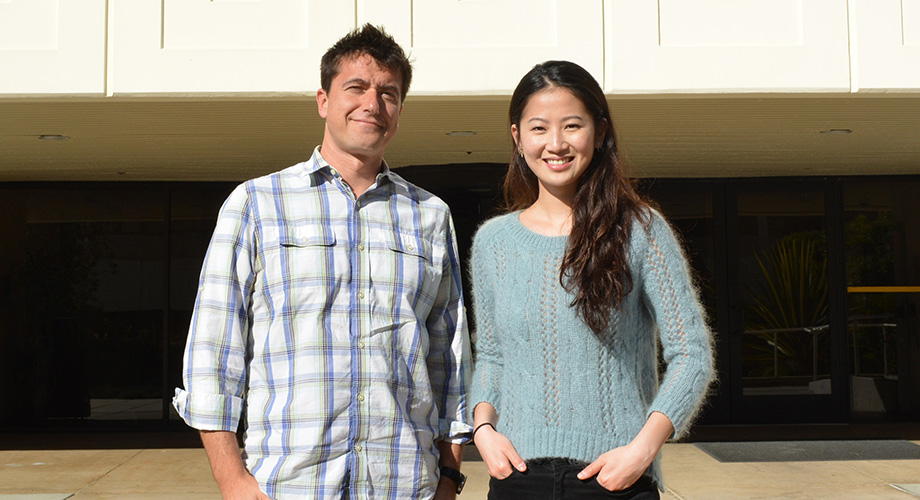Q&A with Julia Su Zhou Li
Published:
May 16, 2019
Author:
Office of Communications

What are your earliest memories being exposed to science growing up?
I can’t say I necessarily had any scientific influence from my family growing up; both my parents are software engineers. The critical thing was that my high school in Canada was very academically-focused and I was part of their International Baccalaureate program. This was unique because it gave me an opportunity to do my own research thesis at the high school level, as well as the chance to attend university science fairs. I chose a biology-related research project, based on eyeball movement and the muscles that control this process. This was my first ever experience with the scientific method; I was fascinated by the whole idea of coming up with a question and then coming up with a set of plans to address the question.
What made you decide on the graduate program at Scripps Research? Looking back, what was your experience like?
The setting of a relatively smaller institute just purely focused on research really stood out to me, which felt a lot more intimate and accessible than a huge university. It is full of world class scientists; in my eyes the caliber is unparalleled. Then it also had the perfect location, being surrounded by other top institutes and a network of biotechnology companies. So I was overjoyed when I received news that I made into the program; there was no doubt in mind that it was going to be my first choice.
Looking back, I am so grateful for the people I met. The other students in the program become your family and I had an amazing advisor. You also get to interact with other members of the faculty at joint lab meetings and during discussions with your advisory committee. Everyone around me was passionate and very inspiring, so it’s hard not to be that way when you’re surrounded by those people. For 3 consecutive years I was also fortunate enough to be a teaching assistant for the program. This was certainly a different experience and it gave me a unique perspective. I could see things from the point of view of the principal investigators, but I was also reminded of what it felt like to be a first-year student, when you’re still trying to find your feet. From this position I could see the growth of younger students and that was very rewarding.
How have you applied your doctoral work experiences to your new position as a post-doctoral researcher?
My project at Scripps Research focused on the discovery of a protein called TZAP, which influences the length of telomeres – the protective caps for chromosomes. This telomere length sets the lifespan of our cells, affecting aging and the incidence of cancer. With this background I wanted to study other specialized parts of the chromosome, particularly those involved in chromosome segregation during cell division. I have since joined an established lab at the Ludwig Cancer Institute at UC San Diego, where they investigate the movement of chromosomes during cell division. Thanks to my graduate experience, I really feel like I’ve gone from someone who could just perform an experiment, to a scientist who can drive independent research. I developed a lot of confidence during the program and now I’m really excited by what the future holds for me with the academic career path.

